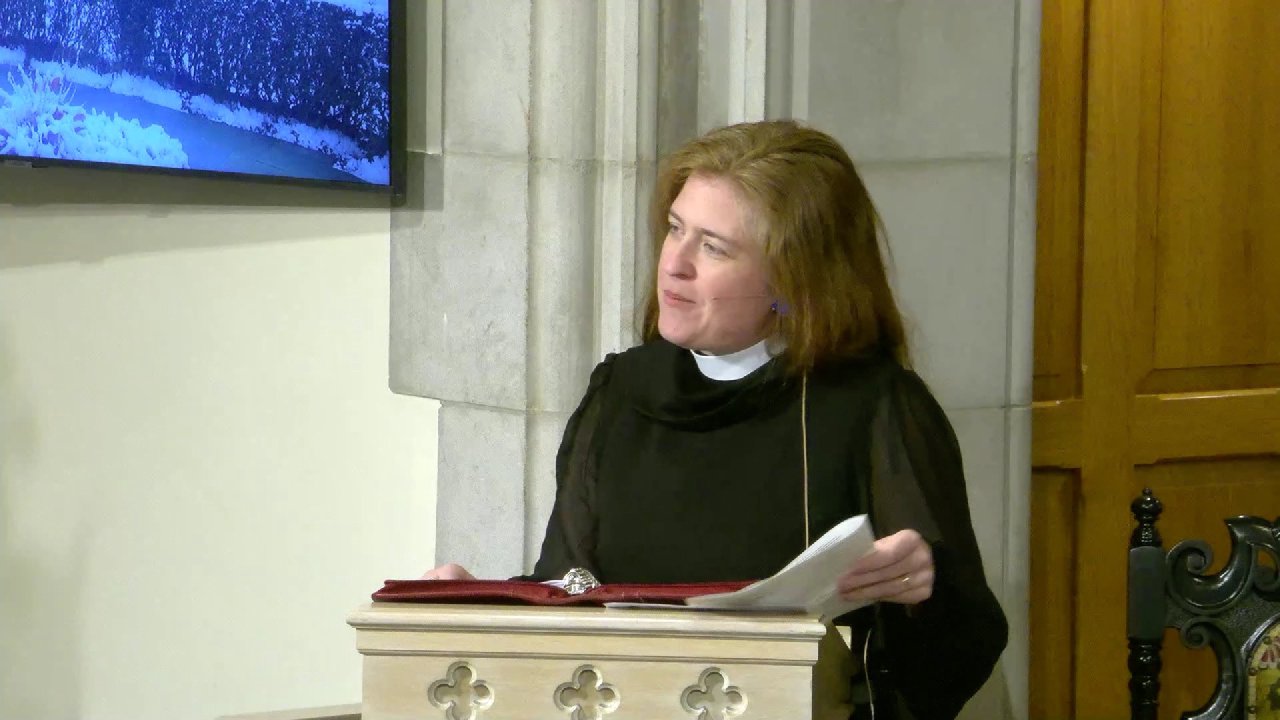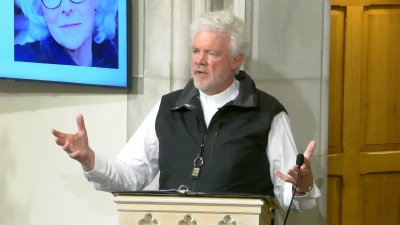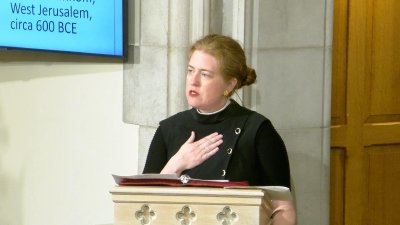A sermon series on Jesus’ grandmothers, and yet Mary is no grandmother. No. She is Theotokos. Bearer of God. Hagia Maria. Saint Mary. Panagia. Most Holy. Purissima. Most Pure. Our Lady of Tenderness. She Who Shows the Way. Throne of Wisdom. Mater Dolorosa, Mother of Sorrows. Her’s is a much more direct lineage to Jesus, the only one whose DNA courses through his veins. From that long pregnant walk to Bethlehem to her place at the foot of the cross, she is a woman of deepest joy and most weighty sorrow. She is not a grandmother to Jesus, but Mary propels us back toward the grandmothers of Jesus all the while allowing their stories to speak into his family tree, showing us again Mary’s place in this most holy pedigree.
Jesus' Grandmothers, V: Mary
Christmastide
February 11, 2024 • Katie Lancaster • Luke 2:41–52
What's Saving Your Life Right Now? V: The Practice of Paying Attention : Reverence
May 5, 2024 • William A. Evertsberg • Revelation 4
We know that reverence is one of the things that is saving our lives right now. We know what makes us flourish. We know what’s good for us. We know what we need, because every day as we scroll through our media, we encounter a swollen, grotesque, vainglorious ego scowling out at us from the screen, reverencing nothing and respecting no one, and we know instinctively that that is exactly what we don’t want to be. It’s ironic: to live large, to live up to the towering stature of our full humanity, we remind ourselves now and then that we are in fact small, contingent, unnecessary creatures, living only by the grace of that Crafty Wizard who threw a hundred billion galaxies across vast eons of emptiness. And so now and then we pause from our daily round to hear something like George Frideric Handel’s "Dettingen Te Deum", a staggering paeon to the matchless majesty of God Godself, the “luminous deep being a lofty light,” as Dante puts.#_ftn1 #_ftnref1Dante Alighieri, Comedy, Paradiso, Canto XXXIII, ll. 115ff.
The Practice of Pronouncing Blessings: Benediction
April 28, 2024 • Katie Lancaster • Numbers 6:22–26
In 1979, archaeologist Gabriel Barkay was excavating the funeral site of Ketef Hinnom in West Jerusalem, and came across a small piece of silver amid the debris pottery and other artifacts. He describes them as about the size of a filter on a cigarette, it being the tobacco heyday of the 1970s and all. Two pieces of silver about the size of a pencil eraser, the size of a tic tac, the size of a ladybug. It wasn’t solid silver, but instead, a silver scroll. Unroll it and in tiny script are the words of the blessing I read to you today. It is from 600 BCE. Think of the artistry. Who pounded the silver? Who chose which blessing to include? Who took a small carving tool to write the text? Who rolled the silver into a small amulet? Who wore the amulet with its holy blessing? The blessing of the wilderness was held dear, embraced, honored, retained, remembered, condensed, and passed on. The blessing of the wilderness, or rather the blessing in the wilderness, was transmitted, entrusted, bestowed generation to generation, so that we might hear it. “May YHWH bless you and keep you.”






